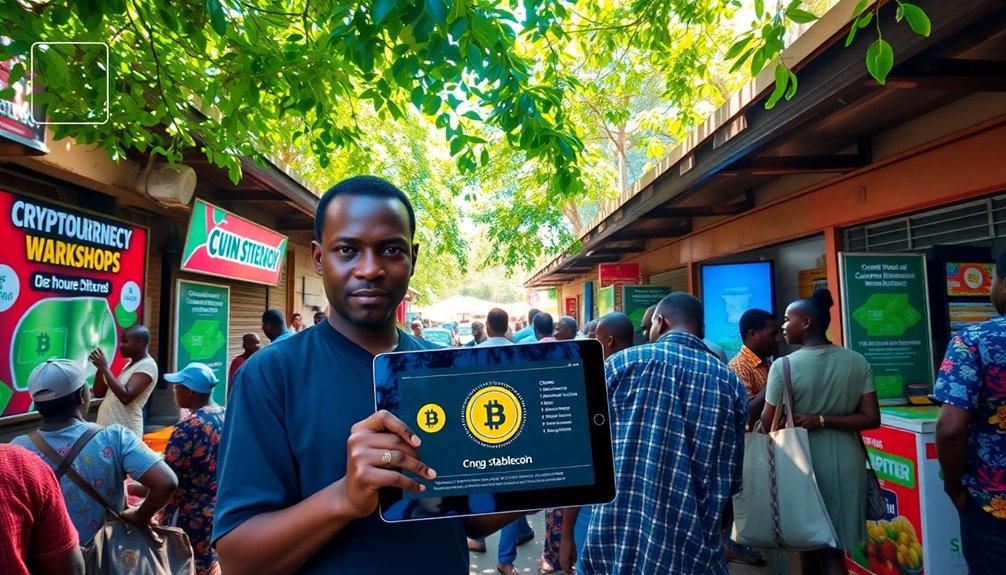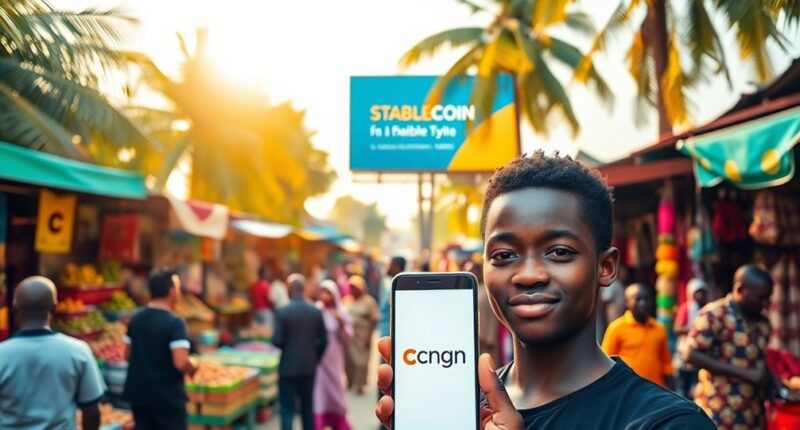Nigeria's digital landscape is on the brink of a transformation with the launch of cNGN, the country's first regulated stablecoin. This innovation promises to enhance transaction stability and financial inclusivity, making it easier for businesses and individuals alike to navigate the evolving digital economy. As Nigeria positions itself as a key player in fintech, you'll want to explore how cNGN could reshape your understanding of financial transactions and investment opportunities.

As Nigeria embraces the wave of digital transformation, you're witnessing firsthand how government policies and private sector initiatives are reshaping the economy. The digital economy's leap from $5.09 billion in 2019 to nearly $10 billion in 2021 is just the beginning. Projections suggest it could reach $18.30 billion by 2026. Key sectors like fintech, e-commerce, and healthtech are spearheading this change, driven by a youthful population eager to innovate.
With significant improvements in internet infrastructure, you're seeing 4G networks flourish across many regions, and 5G is rolling out in urban areas. Nigeria's leap into the future includes becoming the first African nation to tap into Starlink satellite internet services, offering a glimpse of what's possible when targeted investments in fiber optic networks and satellite internet come to fruition. Achieving a national broadband penetration target of 70% by 2025 is ambitious but necessary. However, you can't ignore the challenges posed by power infrastructure and the connectivity gaps that persist in rural areas. Expanding digital infrastructure is crucial to ensuring that all Nigerians can benefit from the digital revolution.
The economic impact of this digital transformation is profound. By 2029, the market is projected to grow from $9.91 billion in 2024 to $22.82 billion, with a compound annual growth rate of 18.17%. Digital services have streamlined financial transactions, making them faster and more efficient. Over 40% of the population now utilizes digital payment methods, illustrating a shift that opens doors for innovation and investment in fintech, e-commerce, and agritech.
The digital age has also improved access to education and allowed businesses to scale beyond local markets. With the launch of Nigeria's first compliant stablecoin, cNGN, you're at the forefront of a significant milestone in the country's blockchain ecosystem. Pegged to the naira, cNGN offers stable transactions that mitigate risks associated with volatile cryptocurrencies.
The introduction of the eNaira in 2021 as a government-backed digital currency further cements Nigeria's position in the digital economy. Navigating regulatory challenges has become crucial, and initiatives by the National Information Technology Development Agency (NITDA) aim to ensure compliance while paving the way for future digital developments.
In this dynamic landscape, you're experiencing the transformative power of digitalization. Embracing these changes not only enhances connectivity and efficiency but also sets the stage for Nigeria's growth as a formidable player in the global digital economy.









